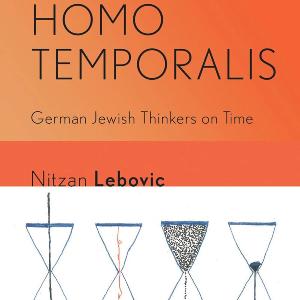
© De Gruyter Brill
Modern scholarship identifies a series of “temporal turns“ in Jewish studies stemming from the early 1900s, 1945, and the present notion that “time is running out“. Lebovic's book Homo Temporalis: German Jewish Thinkers on Time follows thinkers who watched catastrophes unfold but imagined a new world rising from their ashes.
Martin Buber, Walter Benjamin, Hannah Arendt, and Paul Celan shaped our understanding of the Humanities by dedicating their thought to temporal concepts such as Living-presence (Erlebnis), Now-time, Natality, and Breath-turn. Their message was a necessary one for those interested in the modern study of religion, critical thinking, political thought, and post-1945 literature. They all shared a deep understanding of time as the most important component of modern life and “ontological egalitarianism“.
Nitzan Lebovic is Professor of History at the Berman Center for Jewish Studies at Lehigh University in Philadelphia, where he holds the Apter Chair in Holocaust Studies and Ethical Values.
